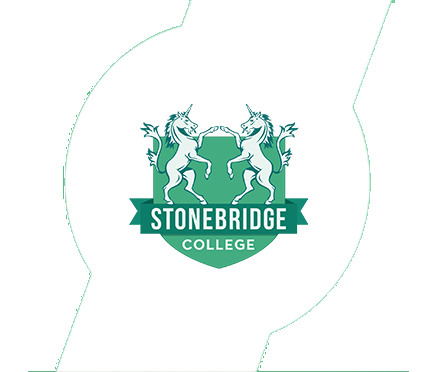Access to Higher Education Diploma (Sport & Physical Activity).

Access to Higher Education Diploma (Sport & Physical Activity)
This Course at a Glance
- Turn your passion for sport into a career
- Explore topics like sports psychology and nutrition
- Study a sports-related degree without A-Levels
- Completion possible within 1 year
- Assignment based – no exams
- Online study
About Your Diploma
Sport can be incredibly exciting, full of energy and can ignite immense tension within fans, team members and sportspeople alike as they watch and witness how events unfold before them. For any sports enthusiast, this can be exhilarating, which is why so many people are captivated by, and actively follow sports of all kinds around the world.
If you’re into sport, exercise, or nutrition, you can advance your knowledge and turn your passion into a career by studying a course in sport and physical activity that leads to a degree. This online Access to Higher Education Diploma (Sport & Physical Activity) is ideal as it is the equivalent to 3 A-Levels and meets the entry requirements for sports-related degrees at most universities.
During the course, you will explore a range of modules that delve into long and short-term effects of exercise, body-related elements that hinder performance and how to unlock the bodies full potential. You will learn everything from the way nutrition and hydration impact physical and sporting activity to the effects of stress and anxiety have on sports performance.
With this knowledge, you will be prepared to tackle advanced sports and exercise-related topics at degree level and be on the path to a number of dynamic and fascinating careers in the field.
Getting Started
Stonebridge Associated Colleges is a leading UK distance learning provider, delivering a host of online learning courses that help learners achieve their academic and career goals. This Access to Higher Education Diploma (Sport & Physical Activity) is a nationally recognised qualification set at Level 3, that is also regulated by the Quality Assurance Agency for Higher Education (QAA).
Once enrolled, you will have two years to complete the course, however, the flexibility of online study means it is possible to complete it much sooner. For this reason, most of our learners achieve their Access to Higher Education Diploma within 9-12 months, which allows them to progress to university within a year.
To help you stay on track, you will receive an Individual Learning Plan (ILP) outlining the submission deadlines for your assignments.
*Please note, entry requirements differ between universities as each institution sets its own. It is your responsibility to check with your chosen institution that this qualification will be accepted before enrolling on the course.
Qualification: Access to Higher Education Diploma (Sport & Physical Activity)
On successful completion of the Access to Higher Education Diploma (Sport & Physical Activity), (QAA aim code: 4001292X), you will receive a Skills & Education Group Access, QAA recognised, Access to Higher Education Diploma at Level 3. As part of your programme, you will also receive help as well as guidance on your university application and the research you need to do to get the most out of your diploma.
Requirements for Entry
Anyone wishing to continue their education with an Access to Higher Education Diploma, it is necessary they have a GCSE Grade A-C in maths and English (or Functional Skills Level 2 or new GCSE Grade 4-9) with a desire to continue a related degree at university. If you do not hold these qualifications then you must be working towards them whilst completing your Access to HE Diploma.
Our Access to Higher Education Diplomas fulfil entry criteria for a broad range of university degrees and can be used in conjunction with the standard UCAS application process. In short, Access to HE Diplomas have a track record of helping learners get to the university and degree of their choice. Learners must bear in mind each university has its own set of admission criteria and places are subject to demand. Varying admission criteria can include but are not limited to the following:
- Number of credits to be attained at merit or distinction level.
- Successfully passing a face-to-face interview at the University.
- Passing a University’s proprietary literacy and numeracy assessments.
- Completion of specified work placements or work experience.
- GCSE Grade A-C (new system 4-9) in maths and English (or equivalent Level 2 such as Functional Skills).
Learners must undertake their own research to ensure their Diploma gives them the best possible chance of gaining entry to their university of choice. It is not possible for Stonebridge Associated Colleges to accept any liability if any Access to Higher Education Diploma student fails to secure an offer from a higher education institution.
Open College Network West Midlands are a national Awarding Organisation, regulated by Ofqual, the Quality Assurance Agency for Higher Education (QAA) and Qualifications Wales, to develop and award nationally recognised qualifications.
Open College Network West Midlands work in partnership with employers, training providers, colleges, universities, schools and voluntary and community organisations to offer vocational credit-based qualifications, Access to Higher Education Diplomas and quality assured Customised Accreditation that enables learners gain employment or to progress into further learning and Higher Education. They also Quality Endorse organisations internal training and skills delivery.
As part of the Awarding Organisation requirements, to receive certification for this training course you must be subscribed for a minimum period of 9 months. The minimum subscription period is measured in total months subscribed, which do not have to be consecutive.
This means that if your personal circumstances change (time available to study, financial pressures etc.), you can cancel/pause your study and payments at any time. If you decide to return to your studies at a later date, you can simply reactivate your subscription and continue from where you left off (we will save all your course progress). Using our subscription service you are not tied into a credit agreement.
To study an Access to HE Diploma you must be resident in the UK and have a UK postcode.
You must hold Level 2 qualifications in both English and Maths, or be working towards them alongside studying your Access to Higher Education Diploma.
University Entry Criteria
It must be reiterated that each university will set its own admission criteria. So, you must check with your desired institution if your Access to HE Diploma and other qualifications will be accepted.
In many cases, to get started on healthcare courses at university, you will need:
- A certain number of credits passed with a merit or a distinction grade
- A face-to-face interview at the university
- Literacy and numeracy assessments provided by the university
- Course-related work placements or work experience
- GCSE Grade C/4 or above in Maths and English (or equivalent Level 2 such as Functional Skills/Key Skills, etc.)
It is your responsibility to check that your Access to HE Diploma will be accepted as part of these entry requirements for your chosen degree. Stonebridge will not be held accountable if completing this Access to Higher Education Diploma doesn’t secure you a position with a higher education institution.
Minimum Age Restriction
This course is ideally suited to those who have completed full-time education but have not achieved the grades required to get into university.
Average Completion Timeframe
The average time it takes our learners to complete the course is 9-12 months.
Assessment Requirements
A range of assessment methodologies are used, including: academic report, essay, case study analysis, illustrated report, journal article, portfolio, academic poster, presentation (video and audio recording), developing promotional activity, series of questions, academic writing skills tasks.
In addition to the qualification units, you will also be required to complete short introductory tasks at the start of your course to support the development of your academic study skills.
Exams Required
There are no exams included in the assessment of the course.
Additional Requirements
Learners must be actively studying for a minimum of six months before results can be ratified and certificates ordered. The six month period does not start until you have completed and passed the course induction and you must be submitting assignments regularly (in line with the deadlines in your Individual Learning Plan) to meet this six month requirement. Certificates can only be issued once your course is paid for in full.
Certification Timeframe
You can expect to receive your certificate 12-16 weeks from your final assignment being marked and graded, depending on the time of year. You will be provided with regular updates throughout the certification process so that you are fully informed of your individual timeframes.
Module 1: Academic Writing Skills
Upon successful completion of this module, you will:
- Be able to structure a written response
- Be able to develop a structured response to a plan
- Be able to present the response appropriately for audience and purpose
- Understand how to apply academic writing principles to own work
Module 2: Reading and Note Making
Upon successful completion of this module, you will:
-
Understand a range of reading strategies
-
Understand the use of language in terms of the purpose and context of a range of texts
-
Be able to use methods for developing notes from a range of sources
Module 3: Sports Development
Upon successful completion of this module, you will:
- Understand the relationship between key concepts and contexts of sports development
- Understand the targeting of particular groups for sports development
- Understand the barriers to participation in sport
Module 4: Psychology of Sport and Exercise
Upon successful completion of this module, you will:
- Understand the impact of personality and personal motivation on physical activity
- Understand the effects of arousal, stress and anxiety on sports performance
- Understand the psychology of group dynamics in sport
- Be able to analyse psychological factors that affect people in exercise situations
Module 5: The Body in Sport
Upon successful completion of this module, you will:
- Understand anatomical terms of reference and the anatomical position
- Understand different body systems
- Understand homeostasis and the operation of negative feedback mechanisms
Module 6: Exercise Physiology: The Respiratory System
Upon successful completion of this module, you will:
- Understand the structure and functions of the respiratory system
- Understand lung volumes and capacities
- Understand the long and short-term effects of exercise on the respiratory system
Module 7: Nutrition in Sports
Upon successful completion of this module, you will:
- Understand the structure and function of the digestive system
- Understand how nutrition impacts sporting performance
- Understand the link between hydration and sports performance
- Understand energy balance in sports performance
- Be able to create and evaluate a nutritional plan for a sporting activity
Module 8: Nutrition: Hydration and Performance
Upon successful completion of this module, you will:
- Understand the signs and symptoms of dehydration, hypohydration and hyperhydration
- Understand hypertonic, hypotonic and isotonic sports drinks
- Understand the importance of fluid intake; pre-event, inter-event and post-event
Module 9: Exercise Physiology: Cardiovascular System
Upon successful completion of this module, you will:
- Understand the cardiac cycle and electrocardiogram
- Understand blood pressure and be able to measure it
- Understand the effects of long- and short-term exercise on heart function and blood pressure
Module 10: Sports Conditioning
Upon successful completion of this module, you will:
- Understand how the components of physical fitness can be trained
- Understand the adaptations of training
- Understand how different training methodologies can be applied to meet the needs of different sports
Module 11: Arousal, Stress and Anxiety in Sport
Upon successful completion of this module, you will:
- Understand the impact of arousal on sport performance
- Understand the impact of stress on sport performance
- Understand the impact of anxiety on sport performance
Module 12: Research Skills: Project
Upon successful completion of this module, you will:
-
Be able to construct a testable hypothesis or research question
-
Understand the different research and sampling methods
-
Understand the importance of ethical considerations when conducting research
-
Be able to collect and analyse data relevant to the research project
-
Be able to write a research project using standard formats
Module 13: Sport, Values and Ethics
Upon successful completion of this module, you will:
- Understand the principles of values and ethics in sport
- Understand performance enhancement issues
Module 14: Sports Injuries
Upon successful completion of this module, you will:
- Understand the causes of musculoskeletal injury
- Understand measures to prevent musculoskeletal injury
- Understand the signs and symptoms of common skeletal and muscular injury
- Understand the healing process in skeletal and muscular injury
Module 15: Contemporary and Cultural Issues in Sport
Upon successful completion of this module, you will:
- Understand professional sports development in the UK
- Understand the influences on modern sport of current media and technology
- Be able to analyse how current issues impacts sport
- Understand how barriers and cultural influences affect sport participation
In addition to the qualification units, you will also be required to complete a course induction which comprises of three short introductory tasks to support the development of your academic study skills.

Your work will be assessed through your end of unit assignments. These will provide you with the opportunity to check up on your knowledge and advance. After each assignment, your tutor will offer feedback to help you not only progress further but also improve your skills.
In addition to the qualification units, you will also be required to complete short introductory tasks at the start of your course to support the development of your academic study skills.
This Access to HE Diploma is a Level 3 Quality Assurance Agency (QAA) regulated qualification. To successfully achieve your qualification, you will need a total of 60 credits. Of these, 45 will come from graded units of academic content, while the following 15 will be drawn from ungraded units concerning study skills.
VALUE
Annual
- 100% Online
- Full Tutor Support
- No Credit Checks or Credit Agreement
Monthly
- 100% Online
- Full Tutor Support
- No Credit Checks or Credit Agreement
Free 7-Day Trial
Register for a 7-day FREE trial (your payment details will be taken at checkout but not charged). Once the trial period ends you will be charged the monthly fee unless you cancel. Cancel Anytime. No Commitment.- 100% Online
- Full Tutor Support
- No Credit Checks or Credit Agreement
This Course at a Glance
- Turn your passion for sport into a career
- Explore topics like sports psychology and nutrition
- Study a sports-related degree without A-Levels
- Completion possible within 1 year
- Assignment based – no exams
- Online study
About Your Diploma
Sport can be incredibly exciting, full of energy and can ignite immense tension within fans, team members and sportspeople alike as they watch and witness how events unfold before them. For any sports enthusiast, this can be exhilarating, which is why so many people are captivated by, and actively follow sports of all kinds around the world.
If you’re into sport, exercise, or nutrition, you can advance your knowledge and turn your passion into a career by studying a course in sport and physical activity that leads to a degree. This online Access to Higher Education Diploma (Sport & Physical Activity) is ideal as it is the equivalent to 3 A-Levels and meets the entry requirements for sports-related degrees at most universities.
During the course, you will explore a range of modules that delve into long and short-term effects of exercise, body-related elements that hinder performance and how to unlock the bodies full potential. You will learn everything from the way nutrition and hydration impact physical and sporting activity to the effects of stress and anxiety have on sports performance.
With this knowledge, you will be prepared to tackle advanced sports and exercise-related topics at degree level and be on the path to a number of dynamic and fascinating careers in the field.
Getting Started
Stonebridge Associated Colleges is a leading UK distance learning provider, delivering a host of online learning courses that help learners achieve their academic and career goals. This Access to Higher Education Diploma (Sport & Physical Activity) is a nationally recognised qualification set at Level 3, that is also regulated by the Quality Assurance Agency for Higher Education (QAA).
Once enrolled, you will have two years to complete the course, however, the flexibility of online study means it is possible to complete it much sooner. For this reason, most of our learners achieve their Access to Higher Education Diploma within 9-12 months, which allows them to progress to university within a year.
To help you stay on track, you will receive an Individual Learning Plan (ILP) outlining the submission deadlines for your assignments.
*Please note, entry requirements differ between universities as each institution sets its own. It is your responsibility to check with your chosen institution that this qualification will be accepted before enrolling on the course.
Qualification: Access to Higher Education Diploma (Sport & Physical Activity)
On successful completion of the Access to Higher Education Diploma (Sport & Physical Activity), (QAA aim code: 4001292X), you will receive a Skills & Education Group Access, QAA recognised, Access to Higher Education Diploma at Level 3. As part of your programme, you will also receive help as well as guidance on your university application and the research you need to do to get the most out of your diploma.
Requirements for Entry
Anyone wishing to continue their education with an Access to Higher Education Diploma, it is necessary they have a GCSE Grade A-C in maths and English (or Functional Skills Level 2 or new GCSE Grade 4-9) with a desire to continue a related degree at university. If you do not hold these qualifications then you must be working towards them whilst completing your Access to HE Diploma.
Our Access to Higher Education Diplomas fulfil entry criteria for a broad range of university degrees and can be used in conjunction with the standard UCAS application process. In short, Access to HE Diplomas have a track record of helping learners get to the university and degree of their choice. Learners must bear in mind each university has its own set of admission criteria and places are subject to demand. Varying admission criteria can include but are not limited to the following:
- Number of credits to be attained at merit or distinction level.
- Successfully passing a face-to-face interview at the University.
- Passing a University’s proprietary literacy and numeracy assessments.
- Completion of specified work placements or work experience.
- GCSE Grade A-C (new system 4-9) in maths and English (or equivalent Level 2 such as Functional Skills).
Learners must undertake their own research to ensure their Diploma gives them the best possible chance of gaining entry to their university of choice. It is not possible for Stonebridge Associated Colleges to accept any liability if any Access to Higher Education Diploma student fails to secure an offer from a higher education institution.
Open College Network West Midlands are a national Awarding Organisation, regulated by Ofqual, the Quality Assurance Agency for Higher Education (QAA) and Qualifications Wales, to develop and award nationally recognised qualifications.
Open College Network West Midlands work in partnership with employers, training providers, colleges, universities, schools and voluntary and community organisations to offer vocational credit-based qualifications, Access to Higher Education Diplomas and quality assured Customised Accreditation that enables learners gain employment or to progress into further learning and Higher Education. They also Quality Endorse organisations internal training and skills delivery.
Module 1: Academic Writing Skills
Upon successful completion of this module, you will:
- Be able to structure a written response
- Be able to develop a structured response to a plan
- Be able to present the response appropriately for audience and purpose
- Understand how to apply academic writing principles to own work
Module 2: Reading and Note Making
Upon successful completion of this module, you will:
-
Understand a range of reading strategies
-
Understand the use of language in terms of the purpose and context of a range of texts
-
Be able to use methods for developing notes from a range of sources
Module 3: Sports Development
Upon successful completion of this module, you will:
- Understand the relationship between key concepts and contexts of sports development
- Understand the targeting of particular groups for sports development
- Understand the barriers to participation in sport
Module 4: Psychology of Sport and Exercise
Upon successful completion of this module, you will:
- Understand the impact of personality and personal motivation on physical activity
- Understand the effects of arousal, stress and anxiety on sports performance
- Understand the psychology of group dynamics in sport
- Be able to analyse psychological factors that affect people in exercise situations
Module 5: The Body in Sport
Upon successful completion of this module, you will:
- Understand anatomical terms of reference and the anatomical position
- Understand different body systems
- Understand homeostasis and the operation of negative feedback mechanisms
Module 6: Exercise Physiology: The Respiratory System
Upon successful completion of this module, you will:
- Understand the structure and functions of the respiratory system
- Understand lung volumes and capacities
- Understand the long and short-term effects of exercise on the respiratory system
Module 7: Nutrition in Sports
Upon successful completion of this module, you will:
- Understand the structure and function of the digestive system
- Understand how nutrition impacts sporting performance
- Understand the link between hydration and sports performance
- Understand energy balance in sports performance
- Be able to create and evaluate a nutritional plan for a sporting activity
Module 8: Nutrition: Hydration and Performance
Upon successful completion of this module, you will:
- Understand the signs and symptoms of dehydration, hypohydration and hyperhydration
- Understand hypertonic, hypotonic and isotonic sports drinks
- Understand the importance of fluid intake; pre-event, inter-event and post-event
Module 9: Exercise Physiology: Cardiovascular System
Upon successful completion of this module, you will:
- Understand the cardiac cycle and electrocardiogram
- Understand blood pressure and be able to measure it
- Understand the effects of long- and short-term exercise on heart function and blood pressure
Module 10: Sports Conditioning
Upon successful completion of this module, you will:
- Understand how the components of physical fitness can be trained
- Understand the adaptations of training
- Understand how different training methodologies can be applied to meet the needs of different sports
Module 11: Arousal, Stress and Anxiety in Sport
Upon successful completion of this module, you will:
- Understand the impact of arousal on sport performance
- Understand the impact of stress on sport performance
- Understand the impact of anxiety on sport performance
Module 12: Research Skills: Project
Upon successful completion of this module, you will:
-
Be able to construct a testable hypothesis or research question
-
Understand the different research and sampling methods
-
Understand the importance of ethical considerations when conducting research
-
Be able to collect and analyse data relevant to the research project
-
Be able to write a research project using standard formats
Module 13: Sport, Values and Ethics
Upon successful completion of this module, you will:
- Understand the principles of values and ethics in sport
- Understand performance enhancement issues
Module 14: Sports Injuries
Upon successful completion of this module, you will:
- Understand the causes of musculoskeletal injury
- Understand measures to prevent musculoskeletal injury
- Understand the signs and symptoms of common skeletal and muscular injury
- Understand the healing process in skeletal and muscular injury
Module 15: Contemporary and Cultural Issues in Sport
Upon successful completion of this module, you will:
- Understand professional sports development in the UK
- Understand the influences on modern sport of current media and technology
- Be able to analyse how current issues impacts sport
- Understand how barriers and cultural influences affect sport participation
In addition to the qualification units, you will also be required to complete a course induction which comprises of three short introductory tasks to support the development of your academic study skills.

Your work will be assessed through your end of unit assignments. These will provide you with the opportunity to check up on your knowledge and advance. After each assignment, your tutor will offer feedback to help you not only progress further but also improve your skills.
In addition to the qualification units, you will also be required to complete short introductory tasks at the start of your course to support the development of your academic study skills.
This Access to HE Diploma is a Level 3 Quality Assurance Agency (QAA) regulated qualification. To successfully achieve your qualification, you will need a total of 60 credits. Of these, 45 will come from graded units of academic content, while the following 15 will be drawn from ungraded units concerning study skills.
Our Advisors.
Our team of course advisors are keen to help.
Call us now on 0121 392 8288
Alternatively, please complete the form below and we’ll get back to you as soon as possible.
Our student support team is here for you.












